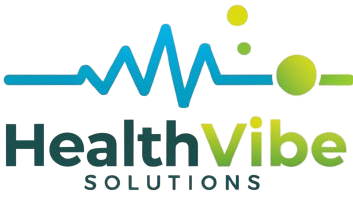DriveWorks and other automation solutions are increasingly essential for companies trying to maximize operations and boost output in the fast-paced, technologically advanced environment of today. DriveWorks may streamline difficult procedures, but its effect on employee mental health is a sometimes neglected factor. In this blog post we will explore in great detail how DriveWorks influences mental health, the stress elements involved, and how businesses may use such technologies into their operations to create a positive workplace.

What is DriveWorks?
Powerful program DriveWorks is meant to automate design in sectors like engineering, manufacturing, and architecture. Automating time-consuming and repetitious chores lets companies create unique designs, bids, and documentation more quickly. Its uses are many and include anything from streamlining the product design process to automating sales setups.
The Importance of Mental Health in High-Stress Industries
High degrees of stress are well-known in sectors such engineering and manufacturing, where DriveWorks is often employed. Employees in these areas generally confront tight deadlines, complicated projects, and the ongoing drive to innovate. Anxiety, burnout, and depression are just a few of the increasingly prevalent mental health problems that should be taken into account when including DriveWorks into new technology integration.
Balancing Efficiency and Employee Well-being
The growth of automation systems, such DriveWorks, has spurred discussions regarding their influence on mental health. On one side, automation may dramatically boost efficiency and minimize monotonous activities. On the other side, there’s the danger of creating workplaces where workers feel overwhelmed by the expectation to perform at a higher level.
Case Studies: For example, some companies have seen productivity sore after implementing DriveWorks, but without proper mental health support, employees may still feel burned out by the fast pace of work.
Potential Stress Factors in DriveWorks Implementation
Adapting to new technology may be a cause of stress. Employees may feel overwhelmed by the learning curve and the requirement to grasp new technologies, while managers may strive for improved productivity as a consequence of automation. These pressures may have a toll on mental health if not appropriately controlled.
The Fear of Automation and Job Security
One of the most major fears of workers when it comes to automation is the fear of job loss. The thought that robots or software may replace human jobs can contribute to fear and uncertainty about the future. DriveWorks, like other automation systems, may evoke similar worries, even if its objective is to improve, not replace, human labor.
Positive Impacts of DriveWorks on Mental Health
It’s not all doom and gloom. DriveWorks may really have a beneficial influence on mental health by decreasing the pressure of repeated chores. Employees no longer have to spend hours manually developing drawings or quotations, which may free up time for more exciting and creative duties. This reduction in regular chores may also lessen stress levels, enabling workers to concentrate on more important work.

The Role of Automation in Fostering Creativity
Automation solutions like DriveWorks enable staff to shift away from tedious activities and participate in problem-solving and creativity. When the stress of routine tasks is relieved, creativity may blossom. Employees may feel more satisfied as they may contribute to more difficult, significant initiatives, enhancing their overall job satisfaction and mental well-being.
Best Practices for Managing Mental Health During DriveWorks Integration
To guarantee that mental health is emphasized throughout the deployment of DriveWorks, firms need to establish best practices that concentrate on employee well-being. This involves delivering thorough training programs that lessen the burden of learning new technology and establishing a friendly culture where workers may freely address their issues.

Leadership’s Role in Promoting Mental Health Awareness
Leadership has a vital role in promoting mental health in the workplace, particularly during moments of technological transformation. Encouraging open communication about mental health and making resources accessible may assist smooth the transition to adopting technologies like DriveWorks.
Creating a Mental Health-Friendly Workplace with DriveWorks
It’s feasible to establish a balanced workplace where automation and mental wellness go hand in hand. Companies should seek to build processes that are not just efficient but also sustainable for employees’ mental health. This includes allowing for flexible work hours, offering frequent breaks, and establishing configurable processes that decrease stress.
Implementing Flexible Workflows and Breaks
One of the benefits of DriveWorks is its versatility. Workflows may be adjusted to match the demands of various projects and teams. Companies may exploit this capability to develop timetables that allow for required breaks and mental relaxation, which are vital for sustaining good mental health.
Tools and Resources for Supporting Mental Health in a DriveWorks Environment
In addition to flexible workflows, firms may provide other mental health options, such as access to therapy or counseling sessions, mental health applications, and wellness initiatives. Incorporating these technologies into a DriveWorks-enabled workplace may help workers manage stress and anxiety more successfully.
The Role of HR in Mental Health and DriveWorks Adoption
HR departments play a vital role in ensuring that workers receive the resources they need throughout the shift to automation. By offering mental health assistance and being proactive in addressing employee concerns, HR can help lessen the anxiety associated with implementing new technology like DriveWorks.
Conclusion:
As organizations continue to deploy automation systems like DriveWorks, it’s crucial to address employee well-being alongside productivity. By addressing the mental health difficulties that may occur and supporting a balanced attitude to work, firms may establish a more sustainable and healthy workplace for the future. DriveWorks, when applied properly, can be a significant tool for both productivity and mental wellness.
FAQs
-
What is DriveWorks and how does it affect mental health?
DriveWorks automates design processes, decreasing workload stress but may potentially generate anxiety during adoption periods.
-
How can companies balance productivity with employee well-being?
By delivering mental health care, flexible workflows, and frequent breaks to minimize burnout.
-
What mental health resources can be used in a DriveWorks-enabled workplace?
Counseling services, mental health applications, and employee wellness initiatives are important options.
-
Does automation like DriveWorks lead to job loss and stress?
Automation may contribute to work anxiety, but appropriate communication and upskilling can reduce fears.
-
How can leadership promote mental health awareness during technological changes?
By fostering open communication, offering mental health services, and supporting staff through changes.


